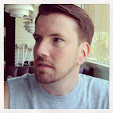Is Ronan Farrow Transitioning?
A friend pointed me to this clip of "The View"(!) and asked if I knew if Ronan Farrow was transitioning -- not that there's anything wrong with it. I have no knowledge about the subject, but there is something very late-era Bruce Jenner about his appearance here.
It's fascinating how bright a person can be in some ways, yet simultaneously blind to the MYRIAD OF FACTS that might tell him he needs to dig deeper into his mother's allegations that his father molested his sister Dylan, which figure heavily in his new book:
A personal narrative running through the book is your relationship with your sister, Dylan. You really wrestle with guilt over how you reacted to her allegations of sexual abuse against your father when you were younger.
One of the decisions I made [in writing this book] was that if I was going to introduce what I went through on a personal level, it couldn’t be a victory lap. It had to be bracingly honest about myself and I had to go to a vulnerable place to help people who are in a similar low point or struggling with similar issues understand how complicated that feels, and how hard it is to make the right choice. You’re not even sure you’re making the right choice at the time. part of that was, [one], confronting head-on the relationship with my sister and the fact that her allegations did inform my understanding, not in any way of what’s specifically factually linked to the Weinstein case, but more broadly to the importance of the issue. I wanted to be frank about the fact that I was one of those guys who told a woman in his life, “You should shut up. This isn’t worth the cost.” It was a gradual and painful journey to come to an understanding that I was wrong and she was right, and that she was doing a brave thing, and that the culture and journalism needed more of that. I hope that personal story is helpful to people on both sides of those relationships. I’ve seen in just about every story I’ve reported about sexual violence that there are always those dynamics at play, that there is always a person in a source’s life — maybe a man — saying, “Why didn’t you just take the easy way out and shut up?” I’ve been there.
Dylan also guides you through the reporting process and offers insight into her own experience of not being believed. How did you and her discuss her presence in the book?
We had a lot of detailed conversations about it. As with any other person who features in the book in a significant way, she went through a fact-checking process. The veracity of those conversations and my notes on them were tested against her recollections independently. Also, as in all of those fact-checking calls, she had the opportunity to weigh in and say, “I’m not comfortable with this part.” Particularly for survivors of sexual violence, I really try to make sure that there’s an opportunity for them to shape how their experiences are being portrayed. That doesn’t mean I’m any less skeptical or rigorous, but it does mean if someone feels something is intrusive and personal and doesn’t want it in…it is such an intrusive and personal subject matter. So the answer is yes: She did get to weigh in. She actually was great about it and was very embracing of the fact that I wanted to be raw and honest about the fights that we had. I hope the book is a tribute to, in addition to the journalists who work on this, also to sources who are in the situation that she was in, and struggling to speak. It was a really nice resolution to the story that her illustrations are in the book. I thought she killed it.
UPDATE: Here's a photo from 2023. (Could this be a factor in his breakup with one-time fiancé Jon Lovett?)






<< Home